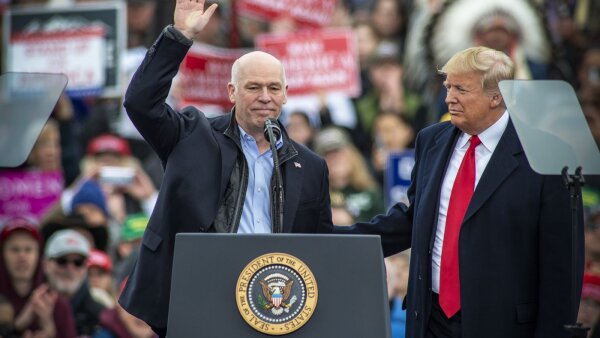Montana Lawmakers Fail to Override Governor's Veto on Marijuana Revenue Bill

04/26/2024
In a significant legislative showdown, Montana lawmakers failed to override Governor Greg Gianforte's veto of Senate Bill 442, a measure that sought to redistribute marijuana tax revenue towards infrastructure and county road maintenance. The bill, which had garnered substantial support during the 2023 legislative session, met its end when the required two-thirds majority of votes in favor of an override was not achieved.
The veto override process was initiated after a court mandate directed the Secretary of State's office to conduct a poll despite not receiving the bill. The secretary of state's office sent out the veto override poll as ordered, but the final tally of votes fell short of the two-thirds threshold needed to override the veto. This outcome has sparked discussions on the future of marijuana legalization and taxation in Montana, as well as the broader implications of the veto override process.
Governor Gianforte's statement following the decision emphasized the rejection of "radical judicial overreach" and highlighted the importance of using marijuana revenue for addiction and recovery services, law enforcement, veterans, wildlife habitat, and state parks and trails. His stance underscores a political and ideological divide within the state regarding the allocation of marijuana tax revenues.
The veto override failure raises questions about the legislative and judicial processes in Montana. Several legislators expressed their concerns by refusing to participate in the polling process, citing the unprecedented nature of the veto polling procedure. This resistance points to potential tensions between the legislative and judicial branches and may have implications for future legislative efforts.
Looking ahead, the path to legalization in Montana may face new challenges in light of the veto override failure. The outcome of this legislative battle could impact the distribution of marijuana tax revenues and the allocation of funds toward various state programs and initiatives. Moreover, it may influence the legislative process and the relationship between the branches of government in Montana.
As the state navigates the aftermath of the veto override failure, it remains to be seen how lawmakers and stakeholders will approach marijuana taxation in the future. The contentious nature of this issue underscores the importance of open dialogue and collaboration between the legislative, judicial, and executive branches to ensure that the interests of Montanans are effectively represented and addressed.







